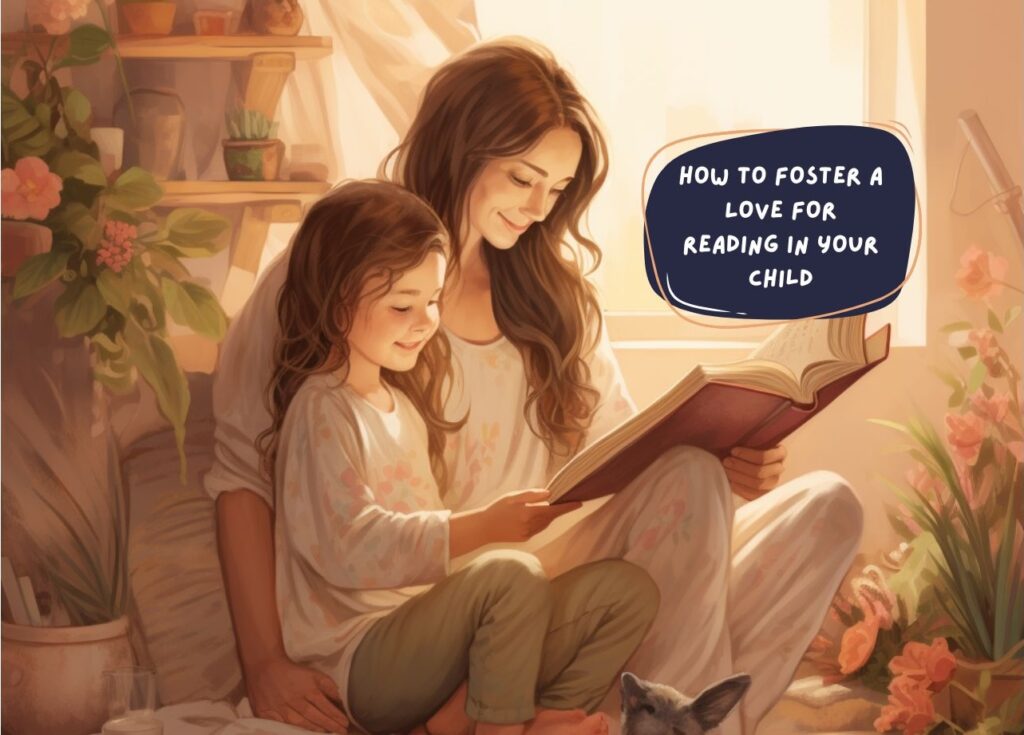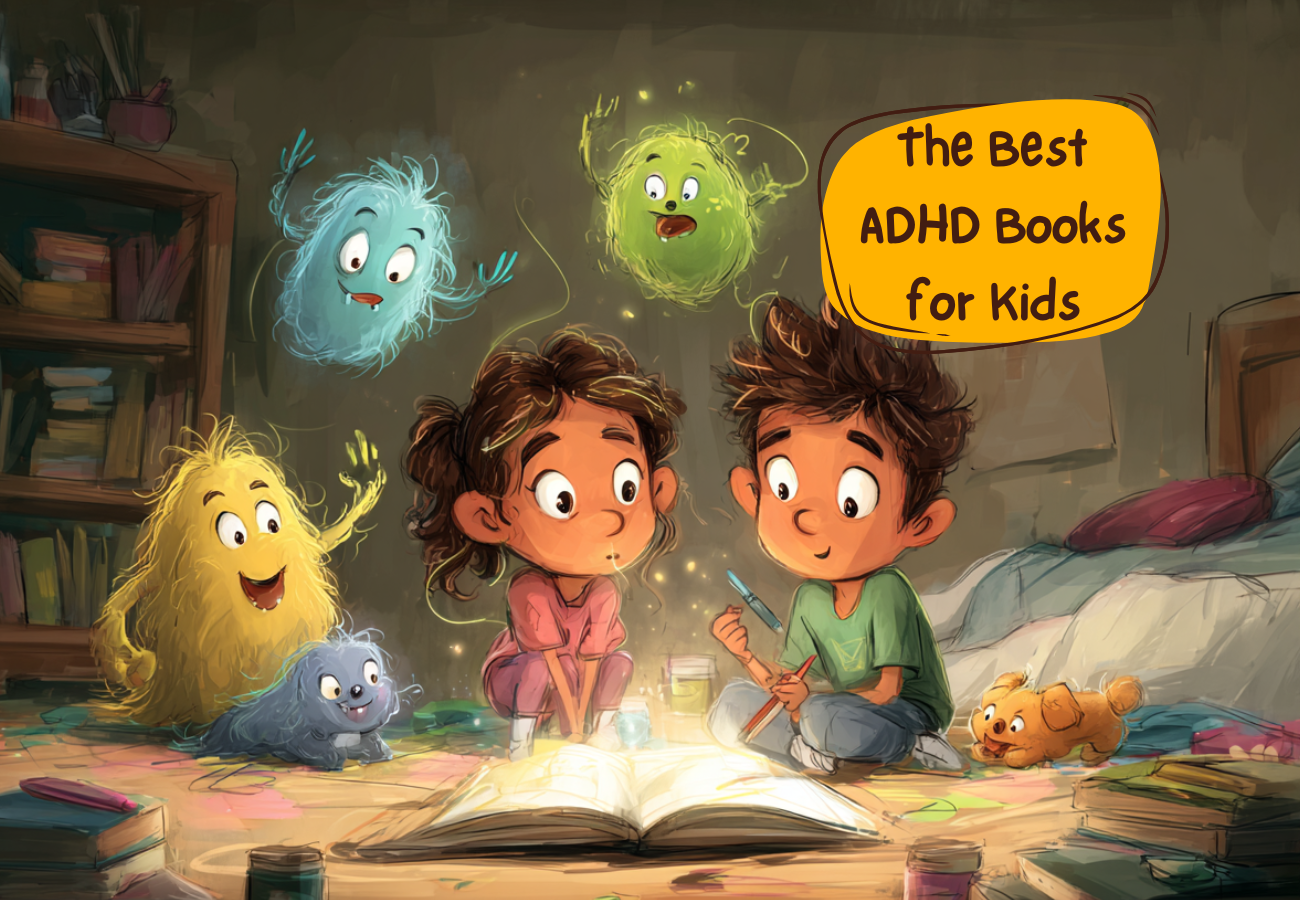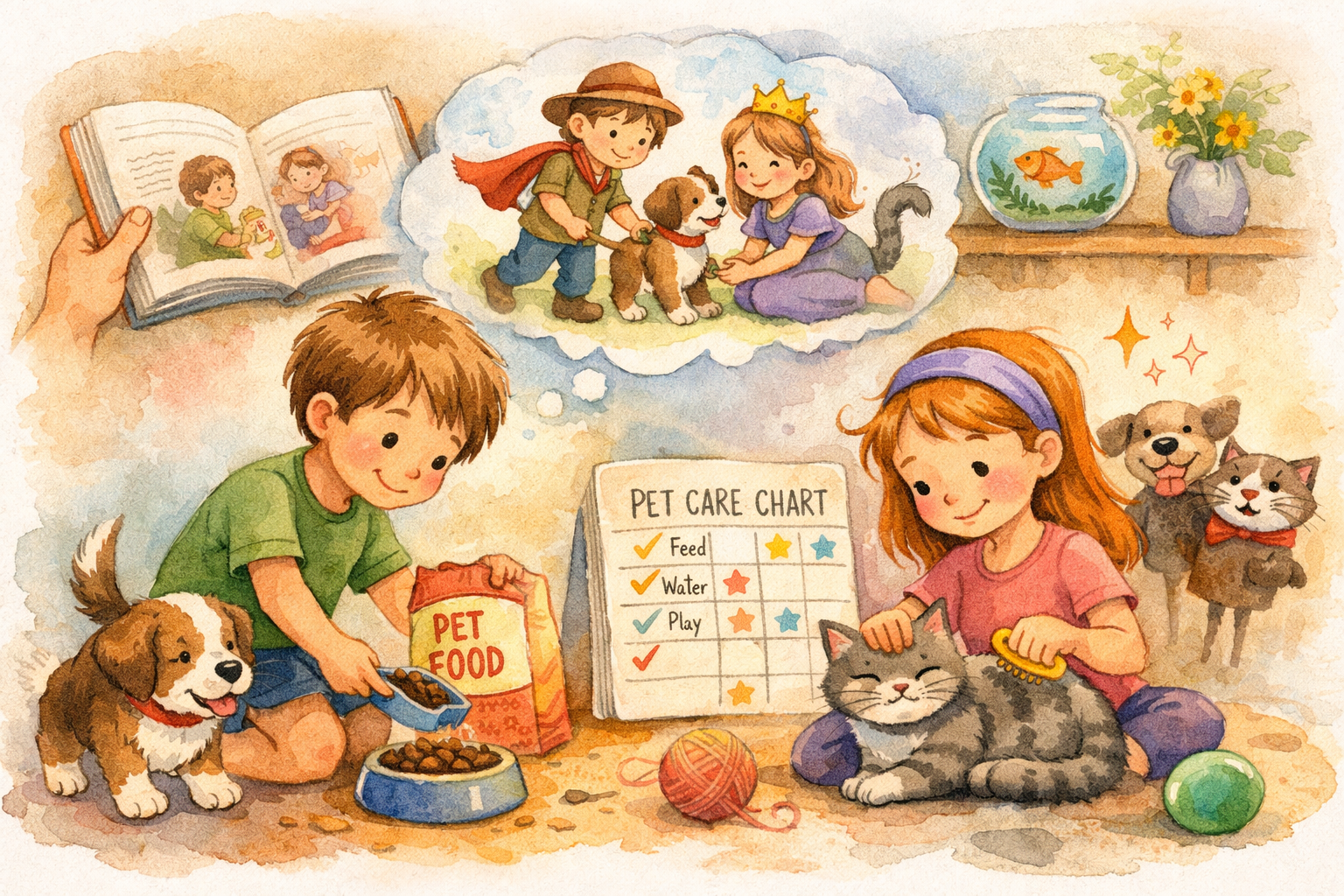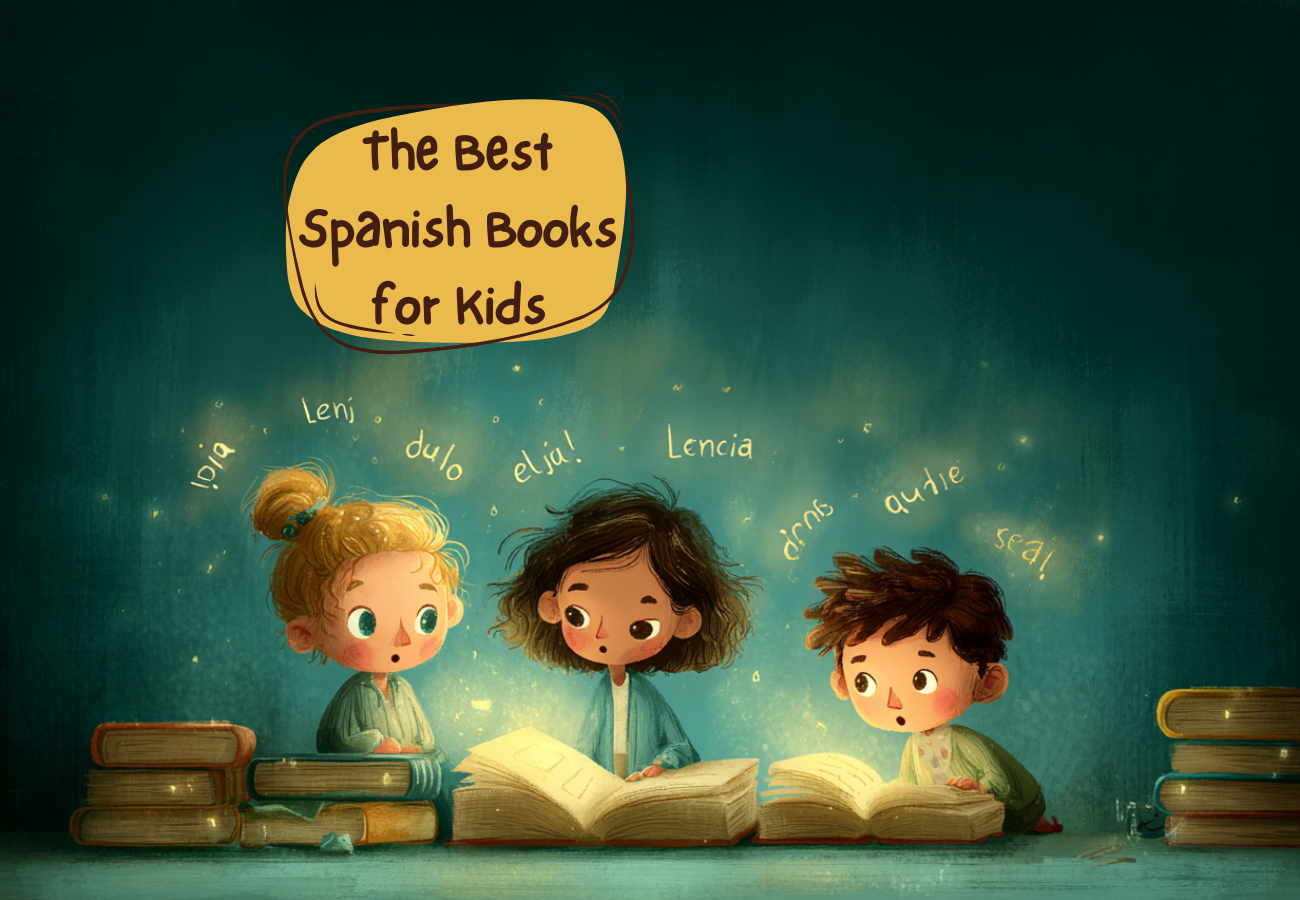How to Foster a Love for Reading in Your Child

The journey of instilling a love for reading in your child is a remarkable and transformative experience. Beyond acquiring a fundamental skill, it unlocks a world of knowledge, imagination, and creativity. This article delves into practical strategies for parents and caregivers, exploring how to cultivate a lifelong passion for reading in children.
Start Early: Planting the Seeds of Literacy
One of the critical foundations for developing a love for reading is starting early. Introduce your child to the enchanting world of books from their earliest years. Opt for age-appropriate, visually engaging books with colorful illustrations to capture their attention and imagination.
Lead by Example: Creating a Reading Culture
Children often mirror the behavior of their parents or caregivers. Demonstrate a genuine love for reading by weaving it into your daily routine. Whether indulging in novels, perusing newspapers, or flipping through magazines, let your child witness the joy you derive from reading.
You could even think about writing a book for your child to ensure they’ll be interested in the subject matter – and if you want to find a wider audience, you can work with experts who know how to market books to give you the best chance of success.
Create a Reading-Friendly Environment: Crafting Comfortable Spaces
Design a dedicated and cozy reading space within your home. Ensure good lighting and comfortable seating, turning reading into a pleasurable and inviting experience. Try searching for kids reading nook ideas in my blog. Transforming a corner of your living space into a literary haven can significantly impact your child’s reading habits.
Variety is Key: Catering to Diverse Interests
Furthermore, diversifying a child’s reading experience goes beyond merely exposing them to various genres; it involves identifying books that align with their interests and preferences. Research in child psychology, as outlined by the American Library Association, suggests that children are more likely to develop a genuine love for reading when they are given the autonomy to choose books based on their interests.
To facilitate this, parents and caregivers can converse with their children, asking about their hobbies, favorite activities, or the topics that fascinate them. By understanding a child’s passions, adults can tailor the selection of reading materials to resonate with those interests. For example, a child fascinated by dinosaurs might find immense joy in books about prehistoric creatures, while a budding astronomer may be captivated by tales of space exploration.
Additionally, research from the Reading Agency emphasizes the importance of considering a child’s developmental stage when selecting books. Children go through distinct cognitive and emotional development phases, and choosing books that align with their current stage not only sustains their interest but also supports their overall learning experience.
Librarians and educators, equipped with a wealth of knowledge about age-appropriate literature, can serve as valuable resources in helping parents and caregivers discover books tailored to a child’s interests and developmental level. Local libraries often organize reading programs and events, providing opportunities for children to explore different genres and discover books that resonate with them.
In conclusion, the journey to instill a love for reading involves not only exposing children to a variety of genres but also actively involving them in the process of selecting books that align with their interests. This personalized approach, supported by the insights of child psychology and literacy research, ensures that the reading experience becomes a dynamic and enjoyable exploration for the child, laying the foundation for a lifelong passion for literature.
Make it Interactive
- Engaging in the Reading Process. Actively involve your child in the reading process. Ask them questions about the story, characters, or their favorite parts. Encourage them to express their thoughts and opinions, fostering a sense of involvement and personal connection with the material.
- Visit Libraries and Bookstores. Transform trips to the library or bookstore into exciting family outings. Allow your child to choose books based on their interests, instilling a sense of ownership in their reading journey.
- Establish Reading Rituals. Allocate dedicated time each day for reading. Make bedtime stories a cherished ritual, creating positive associations with the act of reading itself. Consistency in reading habits contributes significantly to developing a lifelong love for books. For some kids reading might be hard because they can’t focus be attentive for long enough. If you want to know how to tackle that issue, read on that before forcing your kids to read.
- Connect Books to Real Life: Making Stories Meaningful. Relate the stories your child reads to their real-life experiences. This connection makes the narratives more relatable and meaningful. Consider incorporating activities or visits to places inspired by the books, enhancing their comprehension and engagement.
Embrace Technology: Balancing the Analog and Digital
Embracing technology as a tool to foster a child’s love for reading is a nuanced endeavor that requires a careful balance between the advantages of digital resources and the potential drawbacks associated with excessive screen time. Research from the Joan Ganz Cooney Center for Educational Media and Research underscores technology’s positive impact on children’s literacy development.
According to their findings, digital reading materials can enhance comprehension, vocabulary, and overall reading engagement when used purposefully. Educational apps, in particular, have shown promise in promoting interactive learning experiences that cater to individualized learning styles.
Reading websites are valuable tools that offer interactive stories, educational games, and personalized book recommendations. When used wisely, they can enhance traditional reading methods and help children develop a love for reading, making literacy more engaging and accessible.
A study published in the Journal of Children and Media emphasizes the positive influence of audiobooks on language development and reading proficiency in children. Audiobooks, with their auditory engagement, expose children to diverse storytelling techniques and support language acquisition and pronunciation. This research highlights the potential of incorporating technology to complement traditional reading methods, offering a multifaceted approach to literacy development.
However, parents and caregivers must be vigilant about monitoring screen time amidst the benefits. The American Academy of Pediatrics recommends establishing clear guidelines for using digital devices to prevent potential adverse effects, such as disrupted sleep patterns and diminished physical activity. Striking a balance between analog and digital reading experiences is essential to mitigate the potential drawbacks of excessive screen time.
Integrating technology into a child’s reading repertoire should be approached with mindfulness and purpose. When used judiciously, digital resources can be powerful allies in cultivating a love for reading. By combining the benefits of traditional and digital reading experiences while maintaining a balance in screen time, parents can harness the full potential of technology as a supportive tool in their child’s literary journey.
Encourage a Book Club or Reading Group: Building a Literary Community
Creating a book club or reading group for children is a powerful strategy to foster community and ignite a collective passion for literature. Research in educational psychology underscores the significant benefits of social interaction in the context of reading. According to studies conducted by the International Literacy Association, when children engage in discussions about books with their peers, it deepens their comprehension of the material and enhances critical thinking skills.
The communal aspect of a book club introduces children to diverse perspectives and interpretations, enriching their understanding of the stories they explore together. Moreover, the shared experience of reading and discussing books creates a supportive environment that nurtures social skills such as active listening, effective communication, and articulating thoughts and opinions. Researchers from the Journal of Literacy Research highlight that these social interactions contribute to developing empathy and understanding as children learn to appreciate different viewpoints and interpretations.
In addition to the cognitive and social benefits, a book club for children cultivates a shared enthusiasm for reading. The synergy that arises from discussing characters, plot twists, and themes with peers creates an environment where the joy of reading is magnified. Positive peer reinforcement can inspire children to explore new genres and authors, expanding their literary horizons.
Parents and caregivers can be pivotal in initiating and supporting these literary communities. They can establish and facilitate book clubs tailored to different age groups and reading levels by collaborating with schools, libraries, or community centers. In doing so, children enhance their reading skills and develop a sense of belonging to a community of fellow readers.
Conclusion:
Cultivating a love for reading in children is a gift that keeps giving. Integrating these strategies into your daily life lays a robust foundation for a lifelong appreciation of literature. Adapt these tips to suit your child’s unique personality, interests, and developmental stage, and watch as you empower them to become lifelong learners and passionate lovers of the written word.
More articles

The Best ADHD Books for Kids: Supportive Reads for Children and Parents
Supporting a child with Attention-Deficit/Hyperactivity Disorder (ADHD) starts with understanding their world—how they think, feel, and navigate daily challenges. One of the most effective tools for building empathy, resilience, and confidence is reading. The right ADHD books for kids help children feel seen, understood, and empowered. At the same time, high-quality books for parents of […]

Kid-Friendly Ways to Learn Responsibility Through Storytelling and Pets
Teaching responsibility to children can sometimes feel like herding cats – adorable, unpredictable, and a little exhausting. One day they’re eager to help, the next they’ve completely forgotten what they promised to do. The good news? Responsibility doesn’t have to be forced or boring. When you mix the power of storytelling with the real-life experience […]

The Best Spanish Books for Kids: Fun and Engaging Books
Introducing children to a second language early opens the door to stronger communication skills, cultural understanding, and long-term academic benefits. Whether you’re a teacher, parent, or bilingual family, choosing the right Spanish books for kids is one of the most effective and enjoyable ways to support language learning. High-quality books in Spanish for kids build […]



